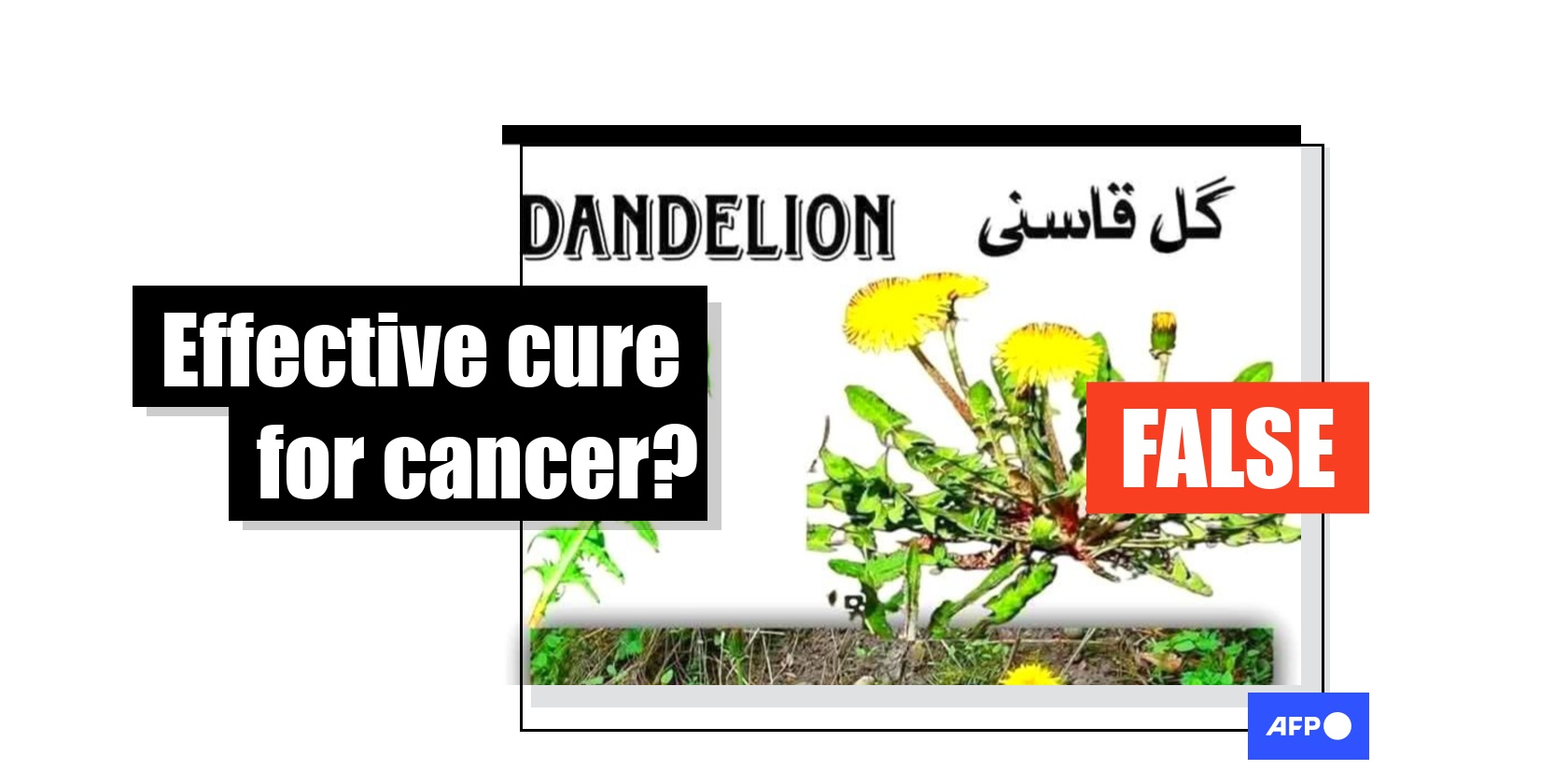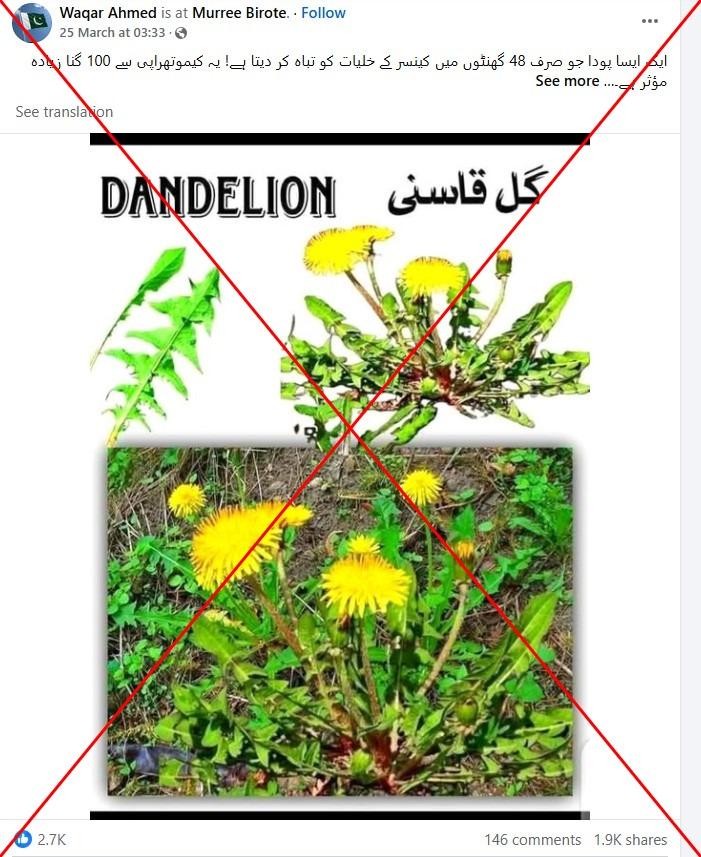
Experts warn against using dandelion tea as cancer remedy
- Published on April 15, 2025 at 07:54
- 1 min read
- By Rimal FARRUKH, AFP Pakistan
"Dandelion is a plant that destroys cancer cells in just 48 hours! It is 100 times more effective than chemotherapy," reads an Urdu-language Facebook post published March 25, 2025.
The post, which racked up more than 1,900 shares, goes on to detail a case in which a man was allegedly cured in four months by drinking dandelion tea after years of ineffective cancer treatment.
Image
 Screenshot of the false post taken April 7, 2025
Screenshot of the false post taken April 7, 2025

Similar posts have been shared thousands of times across Facebook.
But experts have dismissed the method as an "unproven" treatment.
Elizabeth Platz, a cancer epidemiologist at the Johns Hopkins Bloomberg School of Public Health, told AFP on April 9 that she was unaware of any approved clinical use of dandelion flowers or root for cancer prevention or treatment (archived link).
She said there are clinical trials involving supplements or extracts containing dandelion for various conditions, but there has not been much solid evidence that it "prevents or cures cancer in human populations" (archived here and here).
Marianne Baker, research information manager at Cancer Research UK, also told AFP in an April 10 email that "there is no scientific evidence that dandelion extract is an effective form of cancer treatment".
Baker added that any potential new remedy must undergo rigorous trials to establish its safety and effectiveness.
"We would advise anyone considering taking any supplement or unproven treatment to discuss this with their doctor first," she said.
AFP debunked a similar claim in 2021. Professor Myung Seung-kwon from the National Cancer Centre of South Korea said at the time that dandelion's purported anti-cancer properties resemble a "folk remedy" that "having not been tested rigorously, is almost certainly false (archived link).
Fact-checking organisations such as Geo Fact Check, USA Today and Snopes have also debunked similar claims (archived here, here and here).
Copyright © AFP 2017-2026. Any commercial use of this content requires a subscription. Click here to find out more.
Is there content that you would like AFP to fact-check? Get in touch.
Contact us
